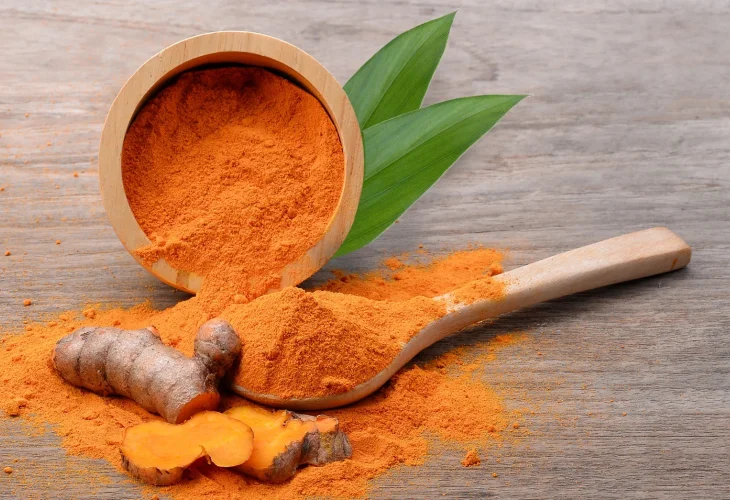Health and Nutrition
Turmeric and Curcumin: Proven Health Benefits, Uses, and Precautions
How This Powerful Spice Supports Inflammation, Immunity, and Joint Health—Plus Tips for Safe and Effective Use
 (Photo: Shutterstock)
(Photo: Shutterstock)Turmeric, one of the most widely used spices in global cuisine, is valued not only for its vibrant color and earthy flavor but also for its impressive health benefits. Originating in Southeast Asia, turmeric has been used in traditional medicine for thousands of years. It belongs to the ginger family and has become the focus of growing scientific interest in recent years, mainly due to its active compound, curcumin.
Curcumin, which makes up 2% to 9% of the turmeric root, gives the spice its distinctive yellow hue. A review conducted at Assuta Hospital in Israel explored the health effects of curcumin and found that it offers a wide range of benefits. Studies have shown that curcumin helps reduce chronic inflammation, linked to diseases such as arthritis, Crohn’s disease, and even cardiovascular problems.
Curcumin is also a powerful antioxidant, helping to protect the body from damage caused by free radicals. These unstable molecules are often associated with premature aging and chronic illnesses like diabetes and cancer.
Beyond its anti-inflammatory and antioxidant properties, early research suggests curcumin may slow the development of certain types of cancer by inhibiting the growth of cancer cells and encouraging programmed cell death (apoptosis). A 2020 study found that patients with osteoarthritis who took curcumin supplements reported a noticeable reduction in joint pain.
Another benefit of curcumin is its support for the immune system. It has demonstrated antiviral effects and may help strengthen the body’s natural defenses against infections. It's important to note however that curcumin is poorly absorbed by the digestive system on its own. For better absorption, it should be consumed with fat-rich foods or combined with piperine, a compound found in black pepper that significantly enhances curcumin’s bioavailability.
Despite its many advantages, excessive intake of curcumin can lead to side effects such as stomach discomfort, nausea, or diarrhea. People with gallbladder issues, those taking blood thinners, pregnant or breastfeeding women, and individuals undergoing surgery or chemotherapy should consult a healthcare provider before taking high doses or supplements.
Turmeric is not a substitute for a balanced diet. The best way to enjoy its benefits is to include it as part of a varied and nutritious eating pattern that incorporates all essential food groups in the right proportions. Adding turmeric to your daily meals can be a great way to support overall wellness, but it shouldn’t be relied on as a cure-all.

